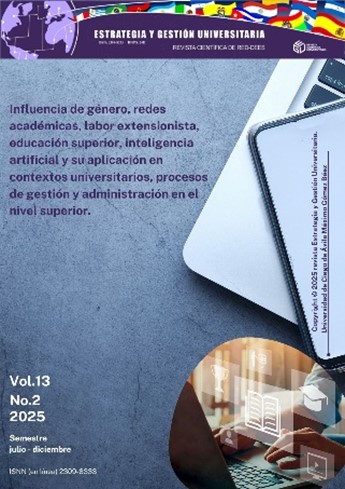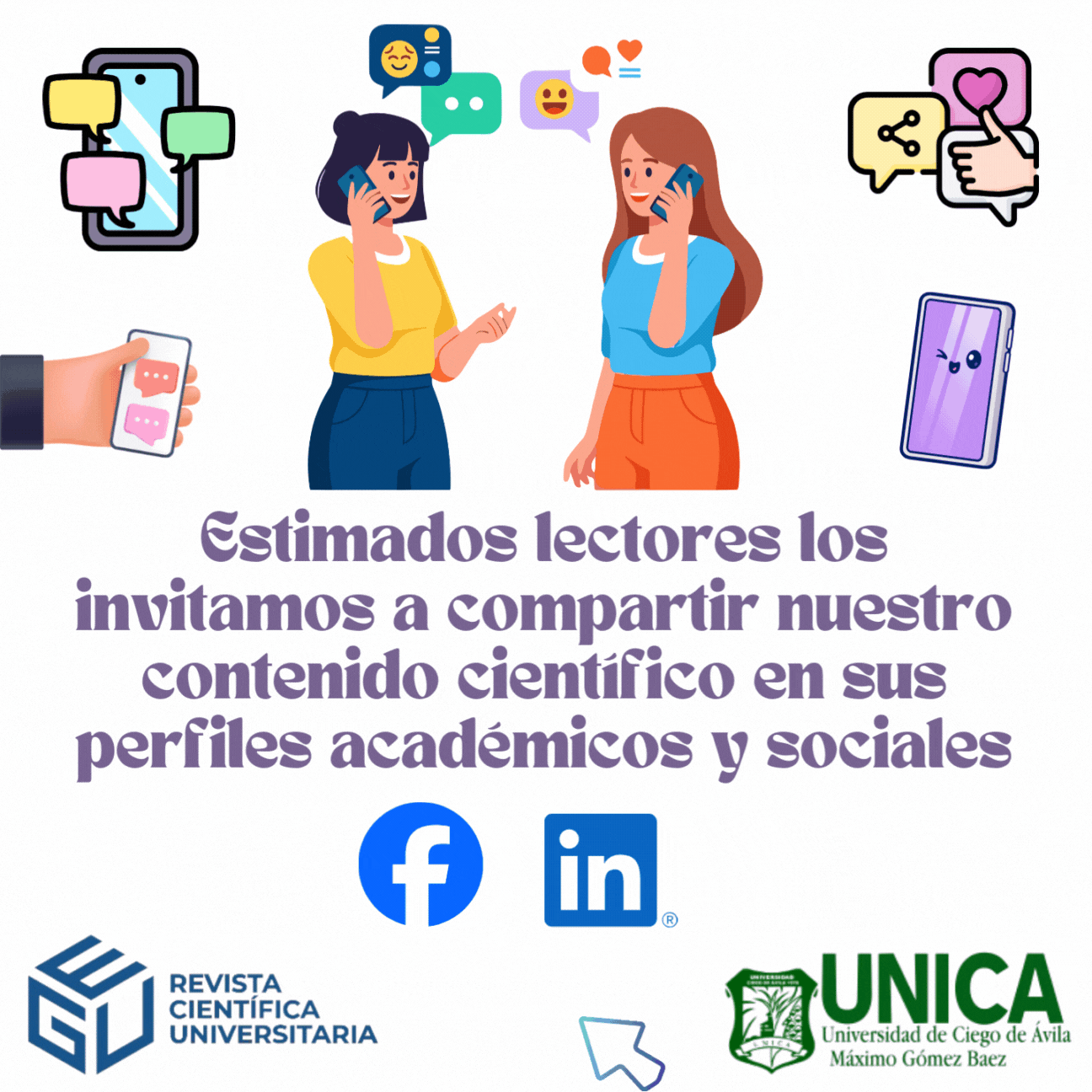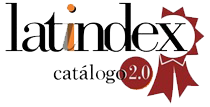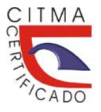The cuban university in social innovation ecosystems for governance in local development
DOI:
https://doi.org/10.5281/zenodo.17387260Keywords:
ecosystems, local development, governance, social innovationAbstract
Introduction: this article addresses the importance of the university as a driving force for governance in local development, based on its essential role in the knowledge linkages that characterize social innovation. Objective: to design a management procedure for the relationship between the university, Municipal University Centers, government, and economic actors, which, as part of social innovation ecosystems and through the systematization of socially innovative practices, contributes to governance in local development. Method: through a theoretical-practical action research approach, the study analyzes how higher education institutions can significantly contribute to the socioeconomic progress of their regions, acting as a central axis in social innovation ecosystems that articulate knowledge management with a multilevel and collaborative approach. Results: the procedure includes the identification of community-level needs, the identification of territorial resources, the creation of monitoring and evaluation mechanisms, and facilitates the systematization of socially innovative practices, contributing to capacity building with a socioeconomic governance perspective. Conclusion: the university, as a catalyst within social innovation ecosystems, has the potential to drive significant changes for governance in local development, promoting an effective integration of knowledge and resources.
Downloads
References
Comisión Económica para América Latina y el Caribe (2024). Perspectivas del Comercio Internacional de América Latina y el Caribe. www.cepal.org/es/publicaciones/apps
Franch León, K. (2017). El conocimiento como catalizador de la innovación social: Una alternativa de desarrollo local en Cuba. COFIN Habana, 11(1). https://revistas.uh.cu/cofinhab/article/view/1032
Galego, G., Moulaert, F., Brans, M., Santinha, G. (2022). Social innovation & governance: a scoping review. The European Journal of Social Sciences. 35 (2), 265 – 290. https://doi.org/10.1080/13511610.2021.1879630
Gatica, S., Soto, W. & Vela, D. (2015). Ecosistemas de innovación social: el caso de las universidades de América Latina. Santiago de Chile. https://acortar.link/sEnuTy
Giraldo-Gutiérrez, F. L., Ortiz-Clavijo, L. F., Zapata Cardona, G. A. (2020). Social Innovation Lab: scenario of social participation, social appropriation and interdisciplinarity. European Public & Social Innovation Review, 5 (1). https://epsir.net/index.php/epsir/article/view/127
González Crespo, A., Carballo Cruz, E., & Carballo Ramos, E. (2022). Procedimiento de innovación de productos turísticos para el proceso de coordinación de Bodas y Lunas de Miel. Cooperativismo y Desarrollo, 10(3), 536-561. https://coodes.upr.edu.cu/index.php/coodes/article/view/498
González Pardo, A.; Carballo Ramos, E. & Carballo Cruz, E. (2024). Creación de capacidades en un contexto de innovación social para el desarrollo local. Cooperativismo y Desarrollo, 12(1), e677. https://coodes.upr.edu.cu/index.php,.l/coodes/article/view/677
González Pardo, A., Carballo Cruz, E. & Carballo Ramos, E. (2024). Innovación social y desarrollo socioeconómico local: un enfoque de sistemas complejos. Universidad & ciencia, 13(3), 220-234. https://revistas.unica.cu/index.php/uciencia/article/view/8702
González Pardo, A., Carballo Ramos, E., & González Cruz, E. (2025). Capacidades de innovación social y desarrollo local: Una perspectiva sociológica en ecosistemas de innovación. Universidad y Sociedad, 17(1), e4973. https://rus.ucf.edu.cu/index.php/rus/article/view/4973
Hernández Ascanio, J. (2020). ¿La innovación social como método de investigación participativo y sociopráctico? Tendencias Sociales. Revista de Sociología, 0(6), 33-63. https://doi.org/10.5944/ts.6.2020.29157
Hernández-Ascanio, J., Aja, J., Rueda, R. y Medina, M. (2021). Medir la capacidad de innovación social en organizaciones complejas del tercer sector. EMPIRIA. Revista de Metodología de Ciencias Sociales, 51, 153-182. https://dialnet.unirioja.es/servlet/articulo?codigo=7915883
Hernández Ascanio, J., Aja Valle, J., Medina Viruel, M. J., & Rueda López, R. (2023). Fundamentación teórica de la innovación social: El problema de la modelización en un campo de estudio sin consolidar. CIRIEC-España, Revista de economía pública, social y cooperativa, (108), 131. https://doi.org/10.7203/CIRIEC-E.108.21451
Horowitt, G. & Hwang, V. (2012). The Rainforest: The Secret to Building the Next Silicon Valley. Regenwald.
ISO 9001: 2015. Que establece los sistemas de gestión de la calidad — Requisitos. www.iso.org
Moulaert, F., Martinelli F., González S., Swyngedouw, E. (2007). Introduction: social innovation and governance in european cities urban development between path dependency and radical innovation. European Urban and Regional Studies 14(3), 195–209. https://doi.org/10.1177/0969776407077737
Moulaert, F. & Mehmood, A. (2011). Spaces of social innovation. In: Pike, A., Rodríguez Pose, A. and Tomaney, J. eds. Handbook of Local and Regional Development. London: Routledge, 212-225. https://acortar.link/CHHuX5
Moulaert, F. & Mehmood, A. (2020). Towards a social innovation (SI) based epistemology in local development analysis: lessons from twenty years of EU research. European Planning Studies, 28 (3), http://dx.doi.org/10.1080/09654313.2019.1639401
Moulaert, F. (2025). From Land Ownership to Landed Commons Social Innovation in the Commoning of Scarce Land Resources. Edward Elgar Publishing. https://www.e-elgar.com/shop/usd/from-land-ownership-to-landed-commons-9781035367245.html
Ndou, V. & Schiuma, G. (2020). The role of social innovation for a knowledge – based local development: insights from the literature review. Pati, 6-25. https://doi.org/10.1504/IJKBD.2020.106841
Núñez Jover, J., Fernández González, A., & Aguilera García, L. O. (2023). Creación de capacidades, conocimiento, innovación y desarrollo territorial. A propósito del municipio que queremos. En L. Pérez Hernández, El municipio que queremos: Fortalezas y desafíos (pp. 131-146). Editorial Caminos. https://doi.org/10.1177/0969776407077737
Parra, E. y Moulaert, F. (2014). Estudios territoriales: el lugar donde la teorización de la innovación social comenzó y continúa floreciendo. https://www.scielo.cl/pdf
Patiño Valencia, B., Villalba Morales, M. L., Acosta Amaya, M. (2022). Towards the conceptual understanding of social innovation and inclusive innovation: a literature review. Innovation and development. 12 (3), 437-458. https://doi.org/10.1080/2157930X.2020.1859215
Paz Enrique, L. E., & Núñez Jover, J. (2021). Agentes productores y socializadores del campo de los estudios sobre desarrollo comunitario en Latinoamérica. ACADEMO Revista de Investigación en Ciencias Sociales y Humanidades, 8(1), 42-54. https://doi.org/10.30545/academo.2021.ene-jun.4
Pérez González, M. del C., & Lutsak Yaroslava, N. V. (2017). La producción científica sobre la innovación social para el desarrollo local. Una revisión bibliométrica. Revista Prisma Social, (19), 146-182. https://revistaprismasocial.es/article/view/1750
Rashed, A. T. A., Abdullahi, A. Y., & Raziq, M. M. (2025). A Bibliometric Analysis on Social Innovation and Social Entrepreneurship Performance in Emerging Economies from 1986 to 2023. Journal of Entrepreneurship and Innovation in Emerging Economies, 0 (0). https://doi.org/10.1177/23939575251369581
Res. 160/2023 del Ministerio de Educación Superior [MES]. (2023). Que establece el Reglamento del Sistema de Evaluación y Acreditación de la Educación Superior (SEAES). www.mes.gob.cu
Santa Cruz, D., Ojalo, V. y Velasteguí, E. (2019). Desarrollo local: conceptualizaciones, principales características y dimensiones. Revista Ciencia Digital, 3 (2), 319 – 335. https://doi.org/10.33262/cienciadigital.v9i2.353
Sosa, M.; Riquelme, Y. y Valladares, O.R. (2020). Consideraciones sobre el desarrollo local. Revista Universidad y Sociedad, 12 (4), Universidad de Cienfuegos, 309 – 315. https://rus.ucf.edu.cu/index.php/rus/
Tansley, A., (1935). The Use and Abuse of Vegetational Concepts and Terms. Ecology, 16(3), 284-330
Von Jacobi, N. & Nichols, A. (2024). Institucionalizing Inequality: fields conditions, institutional belonging, and the distribution of identities. Journal of Economic Issues, 58 (2), 605-618. https://doi.org/10.1080/00213624.2024.2344444
Downloads
Published
How to Cite
Issue
Section
License
Copyright (c) 2025 Estrategia y Gestión Universitaria

This work is licensed under a Creative Commons Attribution-NonCommercial-ShareAlike 4.0 International License.























